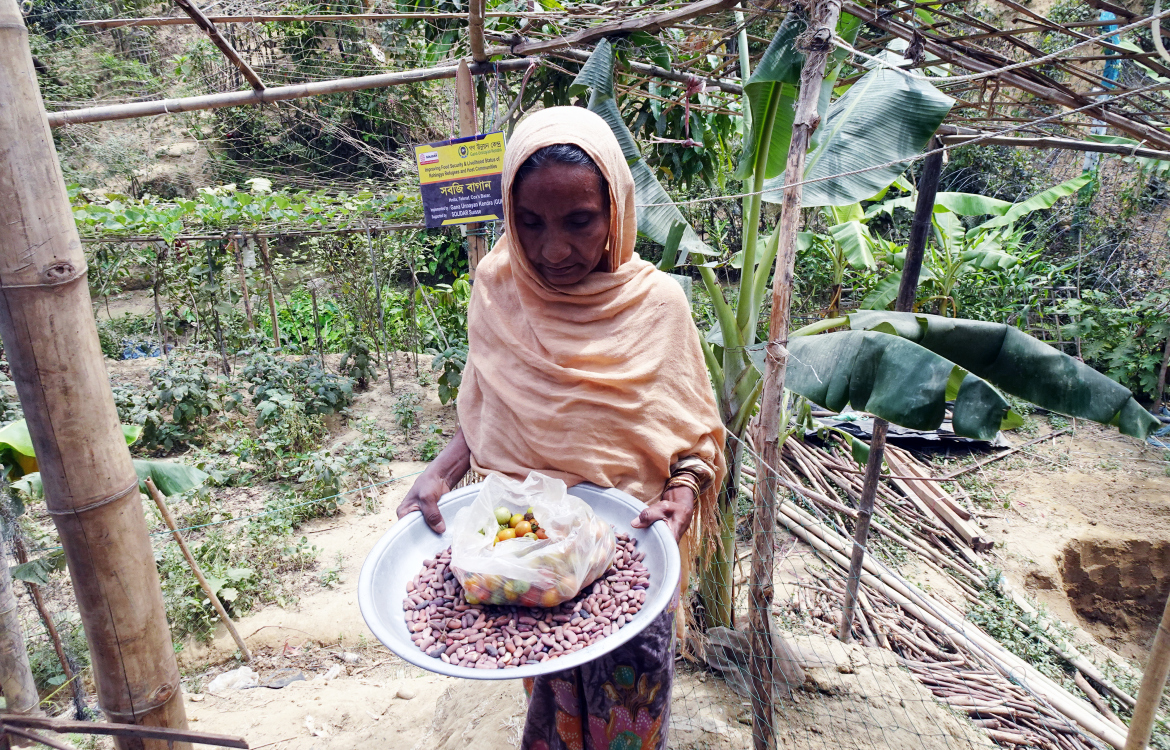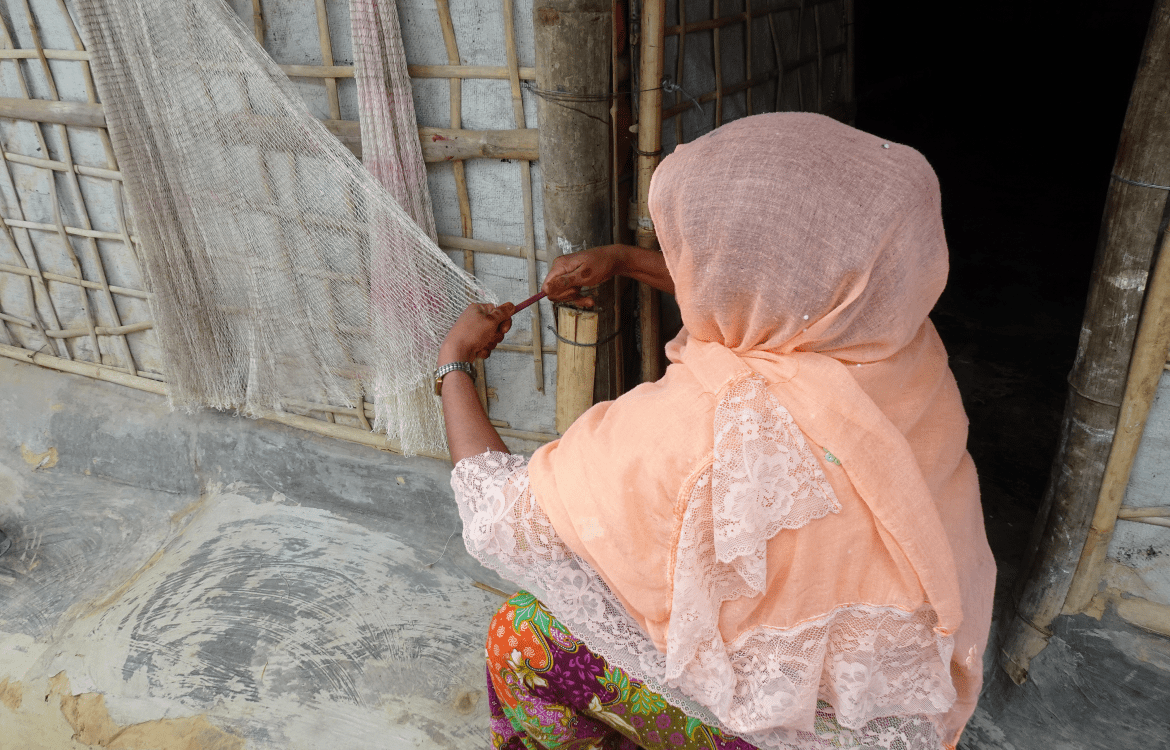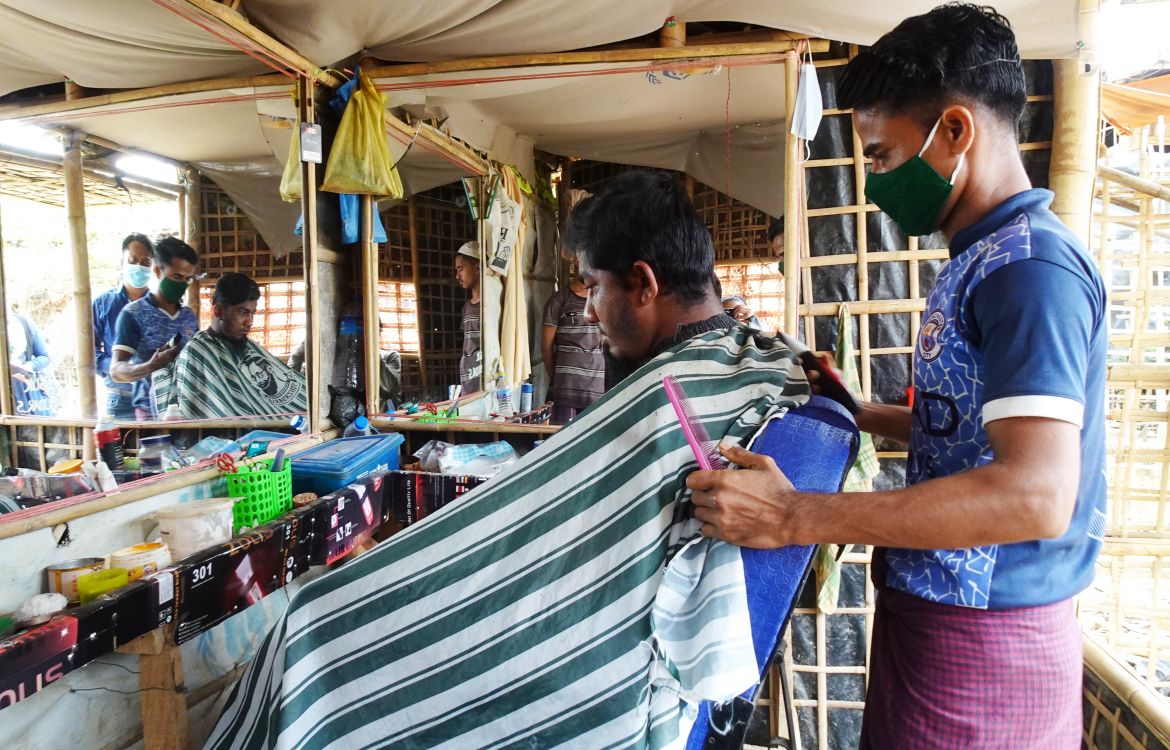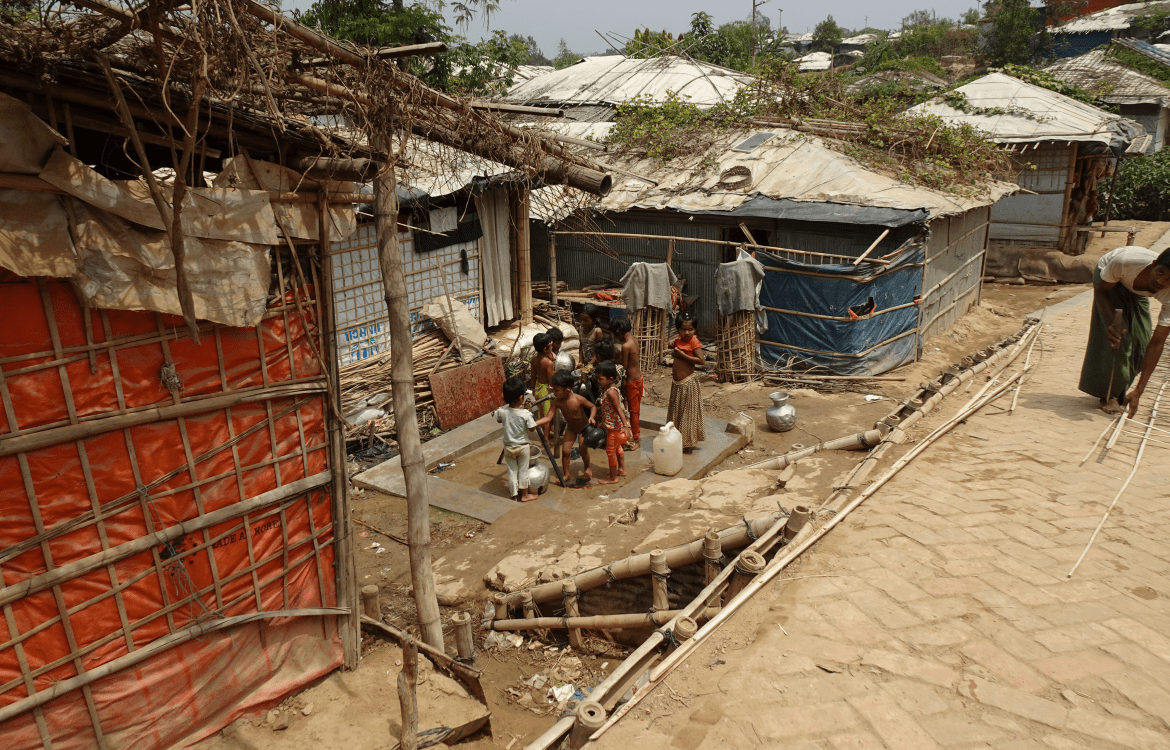Rohingyas: Dead end in Bangladesh
Post information
Author
Share post
Rohingya Crisis turning into a protracted and forgotten crisis: After 5 years of being forcibly displaced by the Myanmar military, over one million Rohingya refugees remain in Bangladesh, with no solution in sight. As the crisis grows more protracted, refugees continue to rely on significant volumes of humanitarian assistance with longer-term needs unmet.
Almost 1 million people live in harsh conditions in the overcrowded Rohingya refugee camps in Cox’s Bazar region, South of Bangladesh. These camps are like open-air prisons. Since barbed wire fences have been erected around all 34 camps. The people there have also been denied a view of hope and a future. My recent visit to Bangladesh shows that the basic needs of the refugees are still barely met. Although the situation of the Rohingya refugees has hardly improved for five years, some NGOs have already withdrawn from Bangladesh while the authorities make it more and more difficult for NGOs to carry out their work. Furthermore, the government still does not allow any plans lasting longer than a year, because its goal is for the refugees to return to Myanmar as soon as possible. Even before the Ukraine war broke out, donor funding for the Rohingya crisis had dropped by almost 30 percent, now it is expected to drop even more, but the Rohingya crisis must not be forgotten.
WHAT does SOLIDAR SUISSE DO
Solidar Suisse continues to address the plight of the Rohingya living in camps and is currently involved in four projects with partner organisations on the ground. The shelter project implemented by our partner YPSA has helped to build a safer living environment in Cox’s Bazar, Ukhiya Upazilla (Camp 14) as shelters need constant renewal, at least once a year, as the tarpaulins and bamboo frames are often damaged by the weather. The supporting organisations need to continue their humanitarian work as we cannot build permanent or even semi-permanent shelters, because the refugees are not actually meant to stay in the camps long-term.
The livelihood project implemented by our partner GUK includes agricultural and non-agricultural activities for the refugees in the camps and the host communities in the villages around the camps. For example, they receive seeds, seedlings and tools, and training to gain agricultural knowledge and learn practices so that they can generate income for themselves. Even though the project ended a few months ago, and although it is the dry season, we can still see the beneficiaries engaged and reaping the results of their production activities.
Another project, the Covid 19 recovery project in Cox’s Bazar will continue until the end of May 2022. During the field visit, I was able to see for myself the incredible benefits and impact of the Conditional Cash Transfer and Unconditional Cash Transfer project activities in the host communities and the Covid vaccination registration and awareness campaign. Solidar regularly evaluates the results and impact of its projects and activities, so an assessment was carried out through a quantitative survey of a representative sample of beneficiaries benefiting from the cash transfer assistance modalities. In August and early September 2021, the results were again assessed with the project team and beneficiary representatives through group discussions and field observations so that project activities constantly adapt to actual needs and adopt lessons learnt and best practices.
FIREFIGHTING PROJECT
There is a high risk of fire in all 34 camps in Cox’s Bazar because the shelters are made of construction materials such as bamboo, plastic and tarpaulins and the use of gas cylinders for cooking is the norm. As recently as January 2022, two devastating fires raged in the camp, destroying hundreds of shelters. Therefore, the Solidar fire prevention project focuses on active and passive fire prevention strategies. The project reaches selected households affected by fires by providing vital assistance and capacity building for the Rohingya population including local fire brigades and volunteers. The project also aims to improve community awareness and capacity to prevent and respond to future incidents. Therefore, the project will build the capacity of local volunteers, educate the general population on basic fire safety measures, strengthen early warning systems, introduce fire safety measures and provide a selected number of households with fire extinguishers and other safety materials.
A lot has been done, but a lot more remains to be done for 920.000 people who are stuck in Rohingya refugee camps to keep hope, gain skills, better shelter and living conditions.
Post information
Author







